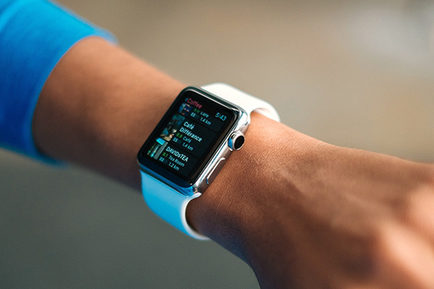Industry Trends
Marketing Insights
Smart home technology has evolved tremendously since the National Association of Home Builders formed its Smart House special interest group in 1984 (Mashable). In fact, 35 years later, virtually all the devices in our lives — from computers and smartphones to kitchen appliances and security systems — can connect to the internet. Meanwhile, innovative brands are making smart products even smarter by incorporating artificial intelligence (AI) in new and creative ways.
But are robots taking over the world?
For one perspective, we turned to Alex Capecelatro, whose computer software company, Josh.ai, promises “sophisticated AI for the luxury home.” In a talk at this year’s International Builders’ Show, Capecelatro said all technology should make our lives easier and better by adjusting to our (very human) behavior.
Here are five things to consider.
1. Artificial intelligence is already a big part of daily life.
For starters, how is AI being used today?
Do you have a Roomba? If so, congratulations! You have an artificially intelligent device that not only has a camera, but also knows where its station is and what time it should clean based on activity. The Roomba even builds a map of your rooms.
AI also exists in image recognition, car technology, package delivery and the health and wellness industry. Fitbits and Apple Watches are both devices designed to help us get better sleep, eat healthier and exercise.
In addition, AI supports many safety and security products, allowing systems to determine the normal state of a home so that they can better recognize anomalies. Consumers want to know the people and possessions most precious to them are safe and sound, and home security represents one of the biggest opportunities for AI and smart home technology. For example, these systems recognize when a garage door is normally closed, so that it can alert the homeowner if it’s open during that time. Flo, a new device from Moen, also detects and stops water leaks to protect homes from water damage.
2. Apps aren't the future.
Capecelatro said some related technology trends are already becoming archaic. One of the most common culprits? Apps — yes, the apps we have come to rely on for almost everything. They present two problems:
- They can be difficult to navigate without a user-friendly interface. Users want an interface that is quickly maneuvered. Worth noting: many want to eliminate the perception of being rude toward others when attempting to navigate an app.
- Apps must be connected to a reliable network to work properly. A poor connection renders them useless.
3. Voice activation has its drawbacks.
Telling Alexa to do something may sound great, but despite the recent growth of smart speakers (Recode), AI’s future is not rooted solely in voice activation. While it does prove faster than an app when giving a complex command, a smart speaker’s limited ability to recognize voice variation in commands is its primary pitfall. For example, one user may tell Alexa, “Bring the lights up,” while another may say, “Make the lights 100%.”
Also, products such as Amazon’s Echo are often advertised as a design element, when in actuality, many people don’t want these devices as the focal point in their kitchen, living room or bedroom.
4. The best smart home devices work smarter, not harder.
The tech industry is recognizing the need for better devices that are both adaptable and user-friendly, and if apps and voice-activated devices aren’t the future, then what is?
Homeowners are constantly installing newer smart home technology, but they also want devices and technology that will last and adjust to their lifestyles. For example, Josh.ai’s tiny Josh Micro is barely noticeable, even when mounted on a wall. It exercises room awareness and recognizes a room’s standard, or norm. It subscribes to the idea that “no interface is the best interface,” and it embraces typical processes instead of screens. This idea allows users to leverage computers as opposed to serving them, making technology adapt to their individual needs.
According to Josh.ai, “With state-of-the-art voice control and intelligence built in, the Josh experience is easy yet powerful.” The idea that a device can offer a comprehensive solution allows processes to work more easily and efficiently — or smarter, not harder.
5. Humans still rule the roost.
Capecelatro believes AI is the future, and he’s not alone. After all, effective AI connects different parts of our lives and allows us to operate them collectively, quickly and accurately, so we can focus on what we want, not how we get it. But while AI and smart home technology can make our lives easier and better, if these concepts and devices don’t adjust to human behavior, they can be useless or even detrimental. That’s one major reason why Capecelatro and most experts agree that humans still rule the roost.

